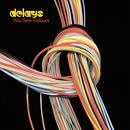Recent news articles, have focused on Reserve Bank of
Complete Link is available at
http://www.thehindubusinessline.com/2009/06/11/stories/2009061151700600.htm
RBI plans 24x7 remittance facility
Our Bureau
Kolkata, June 10 To make fund transfers convenient, fast and more affordable for retail customers, the Reserve Bank of India plans to introduce 24x7 remittance facility called India Money Line, according to Mr Anup Raj, Manager (Systems), RBI.
“India Money Line will be on the lines of the National Electronic Fund Transfer (NEFT) scheme but will be much wider in scope and will work on a 24x7 basis to benefit customers,” Mr Raj told newspersons on the sidelines of a training programme on ‘Payments through RTGS and NEFT,’ organised by the Merchants’ Chamber of Commerce here on Wednesday.
NEFT is a nationwide system to facilitate transfer of funds from a bank branch to any other bank branch. A total of 52,427 branches across 89 banks were part of this NEFT system as on
The 24x7 remittance system being worked out by the RBI would be more or less similar to the one in countries such as
Electronic transactions were lot more cost effective as compared with paper-based transactions, he observed.
Complete Link is available at
http://www.thehindubusinessline.com/2009/04/01/stories/2009040150621500.htm
Soon, money transfer through banks 24x7
| Facility being created by National Payments Corporation. |

A file picture of a State Bank ATM counter.
N.K. Kurup
Mumbai, March 31 Money transfer through banks in
Picture this. Your parents, living in another city, need some cash to make an urgent hospital payment. You can send the money from your workplace or from home to their bank account even at
This facility will be available throughout the country in the next few months when the newly set up National Payments Corporation of India (NPCI) launches its retail money transfer facility.
Branded as “
The real-time money transfer facility is available even now, but the funds are credited to the beneficiary account only during banking hours. Money received after banking hours gets credited to the account only the next working day.
The new facility being created by NPCI, a non-profit entity promoted by banks according to Reserve Bank of India’s advice to take up the retail payment and settlement work, will overcome this problem, said the NPCI official.
Switching facility
How does it work? You can transfer the money from your bank account by mobile or net banking facility and the beneficiary account holder can withdraw it through an ATM. NPCI’s national switching facility helps process the transaction faster. It ensures automatic debit of funds from the sender’s account and credits the same to the beneficiary account, the official said.
There could be an upper limit for the amount which can be sent through this system. Each bank will have a settlement limit and the amount up to that extent will be available for automatic clearing. Since the facility is mainly meant for retail payment, there is no lower limit, the official said.
All bank branches with core-banking facility (having networked branches) will be able to offer the real-time money transfer facility. As of now, close to 80 per cent of the bank branches in the country are core-banking enabled.
Four services
NPCIL, incorporated in December 2008, started functioning from February. At its first board meeting last week, the corporation, set up under the Payment and Settlement Systems Act, decided to take up four lines of services to begin with: Real-time payment service, building a national financial switching facility, India Pay Card service and automated cheque clearing house.
The cheque clearing facilities run by the RBI will not be transferred to NPCI immediately as this was a promise given by the Finance Minister to the RBI employees union, which protested such a move fearing job losses.
However, Dr Duvvuri Subbarao, RBI Governor, recently said that operations of Electronic Clearing Service and the National Electronic Fund Transfer systems will eventually be transferred to NPCI.
Set up under the initiative of Indian Banks’ Association, NPCI, a section 25 company, initially has nine banks as shareholders — five public sector banks holding 51 per cent, two private sector banks and two foreign banks holding the balance.
Eventually, all banks operating in the country will be members of NPCI.
Spread the Joy of ePayments



